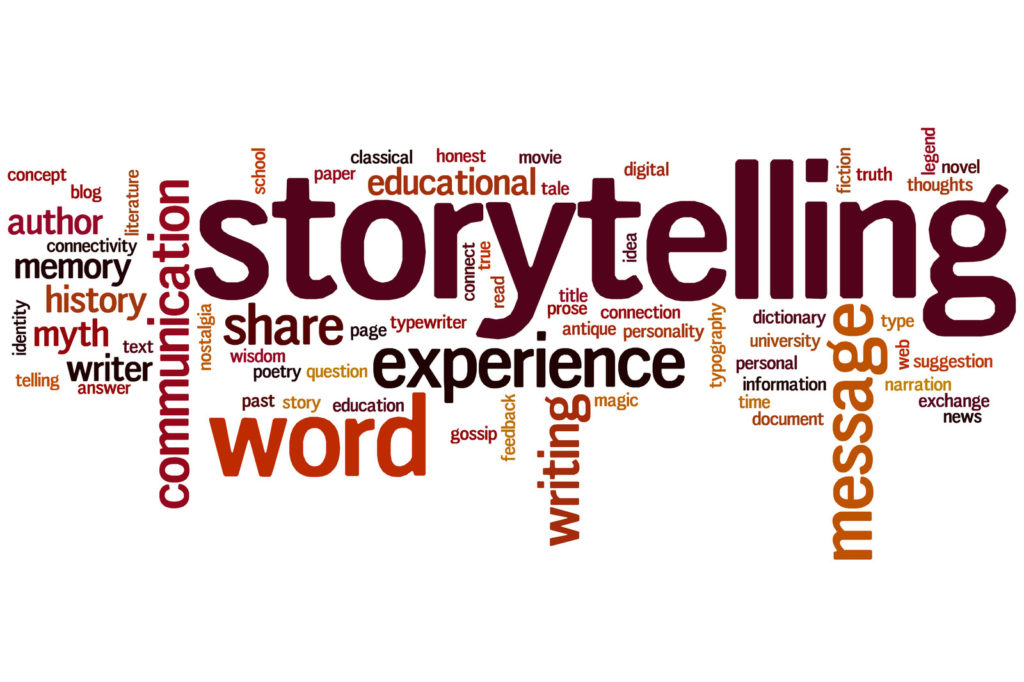5 Steps To Ignite Your Brain For Storytelling
In my last blog I presented the story of my adoption. Now, let’s look at the nuts and bolts of effective storytelling.
THE SCIENCE OF STORYTELLING
Storytelling and can help us make better decisions every day:
Northwestern University psychology professor Dan McAdams, Ph.D. has spent the past decade systematically and quantitatively studying stories. He writes, “Stories allow us to make sense out of otherwise puzzling or random events. Stories help us smooth out some of the decisions we have made and create something that is meaningful and sensible out of the chaos of our lives.” He continues, “Life stories do not simply reflect personality. They are personality, or more accurately, they are important parts of personality…”
Researchers have also discovered the stories we create in our imagination can shape our future. Telling stories of struggle that turn out well may give people the hope they need to overcome obstacles and live productive lives. And stories that vividly describe turbulence seem to help people grow wiser in the aftershock of major life challenges.
STORIES TELL US
Taken together, psychologists’ narrative research makes one unquestionable point: We don’t just tell stories, stories tell us. They mold and shape our thoughts and memories, and they impact how we live our lives.
As a parent, friend, lover, spouse, business person, community organizer, you have limitless opportunities to tell a story that ignites people’s imagination and influence their perceptions to make a positive difference in the world. In fact, your success in life, both personally and professionally – mentally, spiritually, emotionally or socially – depends on your ability to move, motivate, inspire, and drive others to action with story.
Think about all the stories you tell yourself and others and hear throughout the day. They may be stories of complaint, success, horror or healing. The stories that influence are the stories that are vivid in detail and charged with emotional impact.

Storytelling is a key to education, training, innovation and managing communication. Here are 5 steps to Ignite Your Brain For Storytelling.
When you complain or gossip, you are affecting other people’s perceptions in negative manner. When you tell stories that are positive and moving, you shape perceptions in a meaningful way. You can make a major difference in the world by both your intention and your ability to tell a story.
Lock this this fact in your mind: Evolution has wired your brain for storytelling. Use it wisely!
The power of storytelling is being rediscovered because of brain research and the elegance of the imagination. Brain science shows that – without a doubt – the stories we tell ourselves and others have a powerful impact on our perceptions and the choices we make. It is a key to education, training, selling, innovation and managing communication.
We make up short stories, narratives, all day long. We project in the future and write out our “to do” list or think about chores that have to be done or projects to be completed. We create stories about our partners, spouses, children or the world situation.
Science and tech journalist Jeremy Hsu writes in the September 18, 2008 issue of Scientific American Mind, “The Secrets of Storytelling: Why We Love a Good Yarn” that “personal stories and gossip make up 65% of our conversations.”
If you want to move others to action and/or teach a lesson, help others shift their thinking and gain insight, take the time to craft your story.
HERE ARE FIVE STEPS TO IGNITE YOUR BRAIN AND BECOME AN EFFECTIVE STORYTELLER
- Study the art of storytelling. Join the National Storytelling Network, attend local MOTH programs and watch TED talks on storytelling. Read Aesop’s Fables. If you are ambitious, read Socrates, Dale Carnegie or Ben Franklin: all master storytellers.
- Choose the lesson you want to teach, the wisdom you want to impart and be clear on the point you want to make.
- If possible, make your story authentic, one that comes from your experience.
- Make your story “sticky.” Create a story that is vivid, rich in color and detail and is super- charged with emotion. Tell a story so it appeals to the heart as well as the intellect.
- Write your story to help you clarify it.
In a world of quick sound bites, our hyper-connected world, there is still no faster or effective way to make a major difference in your communication than by telling a good story. If you want to live an exceptional life, learn to become an exceptional storyteller.
IMAGINE THAT!
James Mapes is a keynote speaker, best-selling author, coach and hypnotist. His most recent book IMAGINE THAT! Igniting Your Brain for Creativity and Peak Performance is the first web-supported book with access to 21 video-coaching clips.

James Mapes is the founder of Quantum Leap Thinking™, creator of The Transformational Coach™, expert on the psychology of “applied imagination,” best-selling author, highly acclaimed business speaker, consultant, seminar leader and personal excellence coach.
